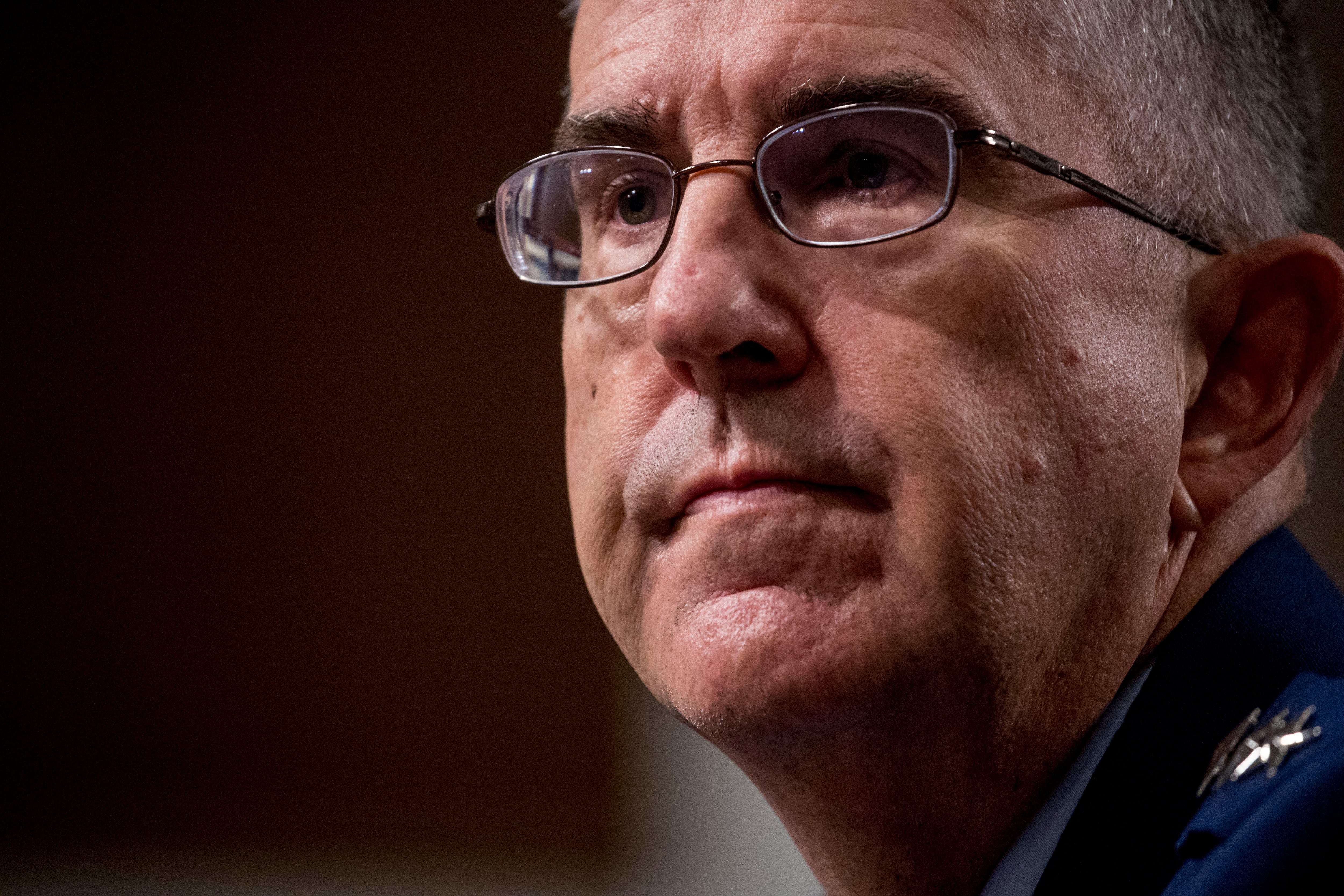Air Force Gen. John Hyten, vice chairman of the Joint Chiefs of Staff, shared a glimpse into his personal struggles with mental health in a video Tuesday encouraging service members to seek help.
“I sought help when I needed it. When I was commander of U.S. Strategic Command, I felt like I needed to get some help. I felt like I needed to talk to somebody. So, I got an appointment with a psychiatrist,” Hyten said in the video tweeted by the Joint Staff.
The general was offered an anonymous, backdoor entry to his appointment, he said, but declined the option. “If I had the flu, I’d walk through the front door to see the doctor. This was no different. Our mental and physical health are equally as important.”
Hyten’s rise from commander of STRATCOM to become the second-highest ranking uniformed member of the U.S. military was controversial, as a subordinate accused him of propositioning her on multiple occasions and attempting to force himself on her in a hotel room.
After a months-long investigation, the Air Force Office of Special Investigations was unable to corroborate claims by Army Col. Kathryn Spletstoser that Hyten had sexually assaulted her numerous times in 2017, and Hyten was confirmed as vice chairman in September, 2019.
Military Times reached out to the Office of the Joint Chiefs to learn more about why Hyten sought help and his experience in doing so, but the office was not immediately available for comment.
Hyten’s video was part of increased efforts during September, National Suicide Awareness and Prevention Month, to spread awareness and destigmatize seeking help for mental health issues, but military suicide prevention remains a top priority regardless of the month.
“Ending suicide in our ranks is a top priority, not just during suicide prevention month in September but throughout the year,” said Hyten.
The Defense Department’s most recent statistics stated a suicide rate of 24.5 per 100,000 for active duty military personnel in 2018.
The civilian suicide rate in the same year was reported as 14.2 per 100,000 by the American Foundation for Suicide Prevention.
Hyten’s video encourages all service members to seek help when they need it by calling the National Suicide Prevention Lifeline at 1-800-273-8255 and pressing 1 for the service member and veterans crisis line.
“Don’t hesitate to get professional help. There are no negative consequences to your career and only positive results for you personally, for your family and your friends,” Hyten reminded service members.
Other resources available to service members include Military OneSource, which offers 24/7 support, and TRADOC’s WeCare app, which is available at 86 different installations around the world to connect personnel with a wide variety of local and national sexual assault reporting and suicide prevention resources.
“Regardless of which uniform you wear, we’re not immune from life’s challenges, including thoughts of suicide,” said Hyten.
If you or a loved one is experiencing thoughts of suicide, please call the National Suicide Prevention Lifeline, 1-800-273-8255, which offers a crisis line specifically for service members and veterans.
Harm Venhuizen is an editorial intern at Military Times. He is studying political science and philosophy at Calvin University, where he's also in the Army ROTC program.




